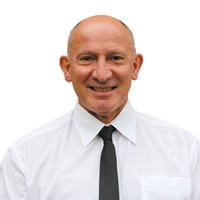It could well be that anxiety will be known as the disease of the 21st century; and talking to parents and teachers, it's easy to understand how someone might think anxiety worthy of the title.
Many psychologists working with young people have noted a substantial increase in the number of people, young and old, reporting with symptoms of anxiety.
Individuals with anxiety disorders tend to have their lives controlled and captured by avoidance, denial, ritual and self-medication. They tend to see the world as threatening and ‘fight or flight’ characterises their reaction to fearful situations in their environment.
In my work as a psychologist I have been intrigued by how easily we are captured by bad news and proceed to catastrophise about how things will get out of control.
Every era has its ups and downs — war, natural disasters, economic trouble, social problems and crime. But what distinguishes today from any other era is our instant access to these devastating events.
In looking at healthy responses to these external events, it may be useful to look at the research of two leading mental health experts who look at the two areas of control and capture with fresh eyes and present some strategies to overcome being captured and controlled by a world seemingly gone mad.
Thanks to technological advances, people can “watch tragedy and disaster on [their] smart phone,” says John Tsilimparis, author of the book Retraining Your Anxious Mind: A New Approach to the Art of Anxiety Management. I have distilled the essence of his approach to overcoming the control issue and will then tackle the issue of capture, so that we can obsess less and be liberated from the tyranny of not feeling in control of our lives.
For many people, anxiety comes from clinging to the illusion of control. People think that they can control what happens in their environment and with other people.
What also drives anxiety is perfectionism and relying on others’ approval. Looking for outside validation inevitably leaves people walking on eggshells and panicked over whether they have said or done the right thing.
First, it’s important to separate the things you can control from the things you can’t. In other words, the motto your parents probably taught you is all too true: the only thing you have control over is yourself.
If you can focus on the stressors in your life that you can control, you’ll end up feeling better about everything else. It is easier to address the little things in our lives that we do have control over.
The irony is that once you let go of wanting to control everything and focus on yourself, you gain control and your anxiety decreases. What also helps is looking at your belief system, which may be distorted.
It is useful for people with anxiety to notice their belief systems and then challenge them. Tsilimparis asks his clients to pay close attention to whether they’re seeking perfection, control or approval during the day.
The key is to be reflective, not reactive. Reactivity breeds anxiety. If an anxiety-producing thought pops up, you might say, “There I go again, I’m about to go into illusion-of-control thinking, and I refuse to go there.”
By testing your beliefs, you can develop “new eyes”. Here is an example. The thought, “I’m never going to be safe because terrorism is a real threat” might cause a surge in anxiety. No thought should go unchallenged. So a helpful way to challenge this thought is by saying to yourself, “I’m focusing on something that I have zero control over. This is the government’s job. So I’ll focus my energy and efforts on what I can control in my life, including my own job and being a good husband and father.”
There’s also nothing wrong with taking a break from the news, which Tsilimparis has suggested to some clients. Simply switch the channel or go TV-free for a few days. Take a quiet walk in natural surroundings.
Anxiety can best be managed through investigating what keeps it in place and gives it a hold. It seems that at this point in time we are captured by our focus on anxiety.
In his new book Capture: Unravelling the Mystery of Mental Suffering (2016), David Kessler posits that the same neurological process that drives people to chain-smoke or over-eat is responsible for many mental illnesses like depression or eating disorders. Dr Kessler has termed this process ‘capture’.
Capture is the process by which our attention is hijacked and our brain is commandeered by forces outside our control. The theory of capture is composed of three basic elements: narrowing of attention, perceived lack of control and change in effect, or emotional state. When something commands our attention in a way that feels uncontrollable and in turn, influences our behaviour, we experience capture.
As capture takes hold and narrows our attention, we may begin to feel as if our thoughts are beyond our control—a sensation that may induce fear or even panic. Alternatively, capture can allow for an experience of flow, the sense that all consciousness is channelled in a single direction in an uninterrupted manner for positive effect.
We are all vulnerable to capture; we all need to find meaning in the random flux of stimuli that bombard us at every moment. Yet, for most of us, this susceptibility is offset by our ability to redirect the wanderings of our attention.
There is hope in an anxious world if we control that which we can control and capture, as far as possible, only those things that give us vitality and joy.
Steve Zolezzi is Co-ordinator, Student Wellbeing, Catholic Schools Office.























































































